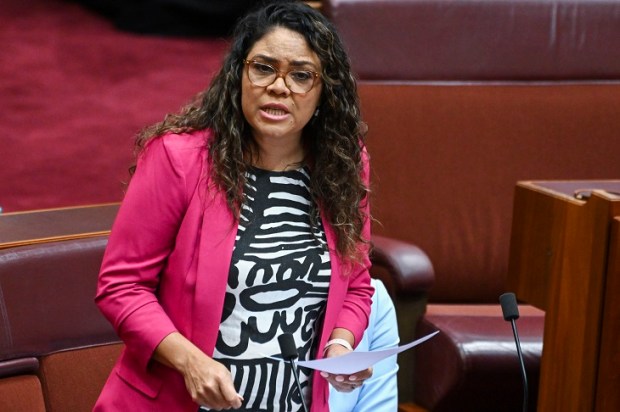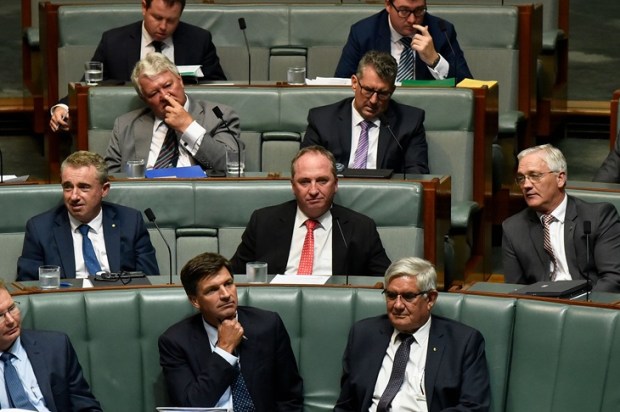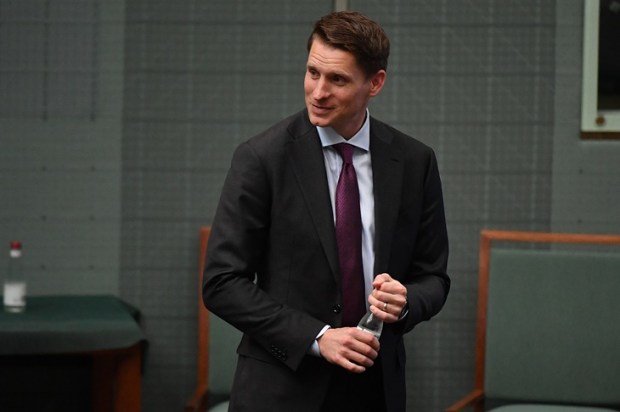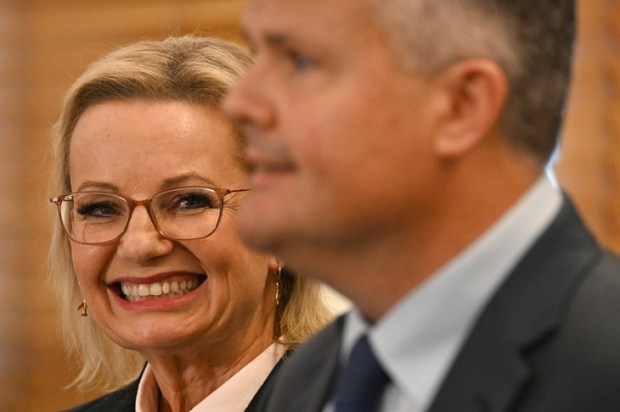‘Put the majors last’ is the slogan of low-information, low-effort voters who are fed up with being taken for granted but still not bothered enough to actually do the hard work of choosing the best person for the job of leading their state and nation.
I’ve been involved in election campaigns over the last few decades, and in one particular federal campaign I was part of the strategy team offering professional services in digital communication. Being in a Labor-held seat deemed ‘winnable’, we had the privilege of a high profile, front bench Liberal Party elder from the Senate (as well as his senior staff) mentoring our campaign in the well-honed strategies of how Liberals win.
We did win that electorate off Labor, and the Liberals have held it ever since.
I learned a lot that year (and in subsequent coalition campaigns), and one of the basic facts is the party assumes roughly a third of voters will never vote for them, a third of voters will always vote for them, and the middle third of undecided voters may or may not vote blue. It is those voters they try to cajole and convince.
The reason the Liberal Party of Australia continues to betray Liberal values and voters is because for decade after decade, Liberal members, supporters, and voters have blindly supported ‘their’ party’s preselected candidates no matter how ‘progressive’ and illiberal they are.
The solution to preserving and even restoring representation of the values of the silent majority has many necessary parts, but the most fundamental of them all is to quit the childish laziness that leads to blind partisanship.
Political parties were founded after the federation of colonies into Australian states, and are not found anywhere in the Constitution. We were always meant to vote for the best people for the job, not parties, and it’s been in the best interest of political parties to promote ignorance of this ideal.
The experiment in self-governance, democracy, is all about idealism, and not at all suited to lazy, uncaring, or immoral people. Unfortunately, Australian culture has evolved into precisely that, and we are more often than not ruled by emotionalism, safetyism, and statism.
Emotionalism is the prioritisation of feelings – betraying intellectualism and sober analysis of facts.
Safetyism is the love of a gilded cage – valuing the comfort and convenience of pretending we’re protected from the dangers of the real world, even if the cost is suffocatingly restrictive regulation.
Statism is the love of government, and this decade has revealed Australians, though we may hate politicians, love a government that gives us more and more services, relieving us of the burden and inconvenience of personal responsibility and community obligations.
The slogan ‘put the majors last’ is a symptom of such vapid emotionalism, addiction to ease at any cost, and the outsourcing of our heavy responsibility to choose the best people to fill our parliaments.
‘Majors last’ makes a stupid, intellectually lazy assumption that all candidates from the same party have the same values and the same courage of convictions.
Are Alex Antic and Matt Canavan equally deserving of being punished for moral cowardice as the illiberal Malcolm Turnbull and Scott Morrison were? Of course not!
Originally part of Clive Palmer’s various adventures in pedestrian populism, does Jacqui Lambie love liberty as much as Ralph Babet? It was so-called ‘freedom voters’ with a blind partisanship that originally elected her predominantly on the colour of her party and not the content of her character.
And if she had not jumped ship and was still in his party colours, they’d do it again with wilful ignorance of her voting record and authoritarian rhetoric because ‘put the majors last’.
More than once in recent history there have been pro-life, Christian Labor candidates who were punished for their party brand by conservatives whilst pro-abortion heathens have been preferenced and elected only because they wore a blue team shirt.
What an opportunity missed to teach the Liberals that they should never risk taking their loyal base for granted, and that there is no longer a whole third of voters who will be blindly partisan at election time.
The problem is – there is.
But when undecided voters decide they’ll never vote Liberal because ‘put the majors last’, there is even less incentive to reform the party of Menzies or tolerate courageous conservatives. It’s a right-wing, self-fulfilling prophecy of Liberal Party hopelessness.
Blind partisanship is always the problem, a symptom of low-effort, low-information voters who want all the benefits of democracy but none of the burdens or responsibilities.
I’m told over and over again that many people have a life that’s too busy or difficult to ask each candidate in their electorate basic questions in the month before they have to vote. Many will even vote early because it’s convenient, and they’ve often made their mind up with no more information than which party leaders best say what they’re thinking.
Hopefully, this isn’t you – and if not, great, but I bet you know dozens of people it perfectly describes.
Blind partisanship has no power to preserve what actually is good in some of the minor, right-wing, freedom parties; but will help completely alienate conviction candidates in the major parties. If you love your party’s published values and constitution, you must demand every candidate is completely supportive by only ever voting for the best person for the job. No party must be rewarded for offering candidates merely a little bit better than Labor.
‘Put the majors last’ or variations of that theme are nothing more virtuous or principled than blind partisanship.
If the minor freedom/conservative/Christian parties are every bit as good as they tell us they are, they will embrace and welcome a genuine contest of ideas as it will always and only reward the most excellent candidates. The parties that object the loudest clearly have the most to lose from political idealism.
Blind partisanship is for lazy, uncaring, childish stewards of self-government.
Being an adult is hard, but there is no excuse for failing to take all care to number every single box.
In the month before an election, sacrifice a few hours of TV, social media, window shopping, phone calls, lawn mowing, or even sleep to do all that is required of you in the weighty responsibility of choosing the nation’s flourishing, your family’s future and the justice and welfare of your neighbours as Jesus commanded us to love.
This is not an apologetic for voting for the majors. No – that would still be blind partisanship!
The non partisanship principle is reliable in every circumstance in every election. The best argument against it is that voters are lazy and don’t want to give up even a few hours of ‘me time’ for the sake of getting enough information to choose the best people for the job of leading the nation.
But don’t mistake reliability for silver bullet guarantees. People like the pro-life LNP MPs who cooperated with the evil agenda of their party leader to preserve the status quo of killing Queensland babies up to and even after birth for any reason will still happen. That is not an argument against non partisanship.
It does, however, help us clarify the exact way simple questions must be put to all candidates once the rolls close. What they ‘believe’ and how they feel about important issues doesn’t matter even a little bit. The only thing that matters is how they will vote, and how they did vote. This question also takes into consideration the constraints of party policy positions yet still gives candidates the opportunity to have their own conscience – if they dare.
I recommend the following simple questions to quickly sort the sheep from the goats and the wheat from the weeds.
- Which is more important if forced to choose between Truth and feelings? Will you vote to protect natural freedoms of speech and religion against attacks from those who seek to protect feelings?
- What is a woman? Will you vote to protect single-sex spaces for biological women in bathrooms and sports?
- When does every human life begin? Will you vote to protect the sanctity of human life from fertilisation to natural death?
When the robotic federal MPs predictably say ‘abortion is a matter for the states’, you can take that as a no, they are not the candidate you are looking for. If face to face, you can ask the follow up question, ‘Who funds the child sacrifice industry in Australia, and do you think it is moral to force people to subsidise with their taxes that which their conscience condemns?’
There are obviously many more questions than that, depending on your worldview and priorities, but these three will certainly expose moral cowards and highlight conviction politicians in any party. The most important thing is to ask them how they will vote, and if they’re incumbent, how they have voted when these issues came up.
Some tips: Be careful with too many questions – they may easily write you off as a fringe nutter. Also, a cowardly non-response is a negative response – they know they can’t represent your values. Wasting your vote because you don’t like any of the options is simply letting other people choose between bad options for you, your family, and your nation. That’s lazy and stupid too.
If there’s no candidate in your electorate willing to commit to voting for indispensable freedoms, common sense gender policy, or the sanctity of innocent human life, be content that the fact of your questions alone has signalled a growing need for Christian culture politicians. You can then use secondary issues and evidence of the candidates’ values to preference them in reverse order from most to least insufferable.
Those MPs who voted in Parliament like moral cowards should be treated like moral cowards when comparing the best people for the job at their next election, no matter their rhetoric at other times – unless they demonstrate true righteousness with tears of repentance for their betrayal of those who elected them for the courage of their convictions at the previous election.
That is how non-partisanship plus time and effort wins the war against our Christian culture.
Blind partisanship, impatience and laziness will lose, and has consistently lost to patient, persistent, idealistic Marxists since the 1950s. It’s how we lost both major parties, and how we will lose the minor parties too if we learn nothing from history.
If we truly love Australia and our families, and if we love freedom, truth, and justice, we must reject all excuses for blind partisanship and always vote for people, never parties.
Only everything is at stake.
Dave Pellowe is a Christian political educator, writer, and founder of Church And State ministries. Visit his website here or follow him on Facebook and X.

























